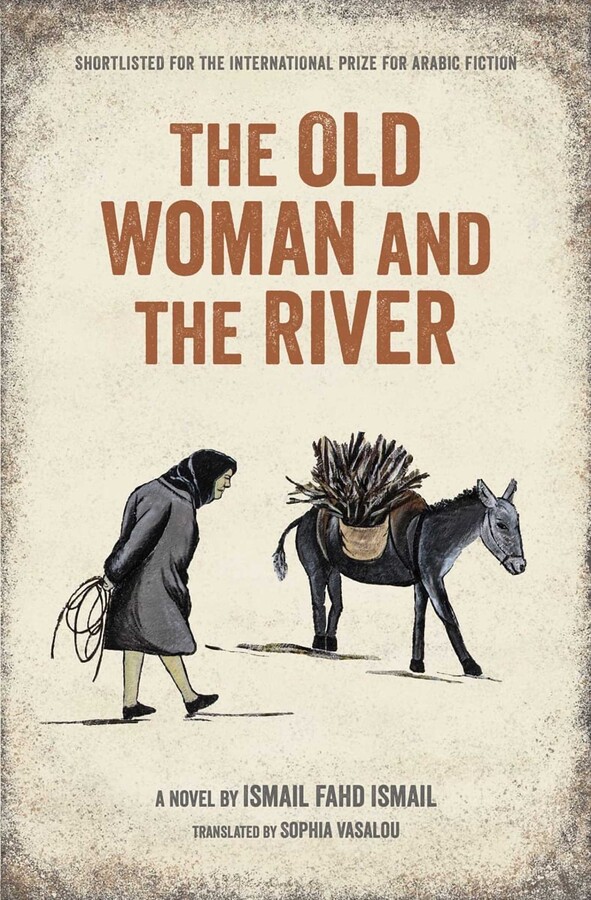
The Old Woman and the River
Mae Ghalwash
Ismail Fahd Ismail. Trans. Sophia Vasalou.
Interlink Books, 2019.
“She knew it was a time of war, but she couldn’t see why they had to destroy everything that blooms by making the rivers run dry.”
—From the Old Woman and the River
This gentle story about the 1980–1988 Iran-Iraq War is based on the author’s investigations into an unexpected patch of greenery amid desolation in postwar southeastern Iraq . The source, he discovered, was an unconventional war hero, Um Qasem, an elderly widow whose relentless nurturing revitalized her war-torn village, Sabaliyat. For real. Taking literary license, Ismail creates a world in tune with the loveable granny determined to preserve life. Her beloved donkey anticipates when she needs a ride or help clearing bomb shells. Homesick soldiers, charmed by her grand appeal, turn a blind eye to her restoration efforts despite evacuation orders. And finally, her late husband’s ghost guides her to unleash the mighty Shatt al-Arab water into Shabaliyat’s parched, smaller rivers and fields, along Iraq’s eastern border. Ironically, this story about war’s absurdity is charming and hopeful, and a refreshing celebration of the largely unrecognized heroes of war, the widows and mothers left to pick up the pieces.
—Mae Ghalwash
You may also be interested in...

Drawing New Conclusions About the Status of Women in Ancient Egypt
Egyptologist Mariam F. Ayad that gender bias among historians accounts for an underrepresentation of women’s lives in historical studies of Egypt.
Book Deconstructs Myth Surrounding Egypt’s Most-Famous Boy King
Egyptologist Aidan Dodson sifts the evidence—from tomb paintings to statuary to temple inscriptions—in his quest to recover the real King Tutankhamun.
Untold Stories of British Muslim Women as Agents of Change
Sociologist Sariya Cheruvallil-Contractor and historian Jamie Gilham present 100 years of Muslim women who have contributed to the dynamism of Islam in Britain.